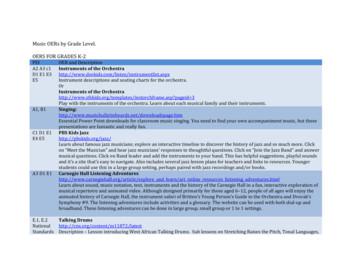Project & Program Management Office (PMO) - Promis-group
Project & Program Management Office (PMO) Presented by: Dr. Jamal F. AlBahar, PMP, VMA Registered Arbitrator; Member: PMI, CMAA, AACE, AAA, PMA, CSI, SAVE INTRODUCTION As the role of project management in the modern organization has grown, many organizations have identified a need to formalize the practice of project management and to develop centers of coordination and excellence for project management. A Project or Program Management Office (PMO) is often viewed as a vehicle to achieve coordination, standardization, optimization, and management of the practice of project management. Although the concept of a PMO is appealing, many organizations often struggle with both the strategic and the practical aspects of establishing and managing a PMO. An inability to create a clear and compelling business case for the PMO, struggling with the issues of designing, structuring, and implementing the PMO, and an inability to clearly demonstrate the value provided by the PMO once operational are a few of the typical areas of concern that face management, PMO implementation teams, and PMO staff alike. This workshop addresses these and other challenges. It provides practical guidance for those considering implementing a PMO as well as those who already work in a functioning PMO. In this workshop, topics of special interest to those who are considering implementing a PMO as well as those who have already been chartered to implement a PMO or who are considering expanding the role of a PMO in their organization are provided. These topics include conducting assessments to identify important project management challenges and PMO opportunities, developing a base business case to present to management that clearly outlines the unique challenges and PMO opportunities within an organization, and conducting a more detailed analysis and implementation planning process that leads to the development and presentation of a detailed business case to formally request permission to proceed with implementation. Following the discussions, we will focus on implementation, execution, and PMO start-up (Roll Out), including practical guidance for marketing the PMO to the organization, selecting and training PMO staff, and ensuring a successful PMO start-up. Lastly, we will focus on PMO in operation. Practical operational aspects such as working to achieve benefit in the PMO's areas of focus are discussed along with planning for the future strategic direction for the PMO. Additionally, three distinct areas of focus for the PMO-knowledge, PMO-standards, and PMO-consulting are presented in detail. Discussion of these topics includes the role that each plays in 1 Project and Program Management Office (PMO) The Registered Education Provider logo is a registered mark of the Project Management Institute, Inc.
advancing the practice of project management within the organization and in providing value to the organization. From a knowledge perspective, developing a project management Knowledge-Base and the role of the PMO in education and training are discussed. The focus of the standards discussion includes developing, managing, and growing organizational project management standards. The consulting focus includes the role of the PMO in project consulting, mentoring, and actively managing projects. Throughout the workshop, practical guidance is provided to aid the participants in successfully establishing the knowledge, standards, and consulting roles in a PMO. An individual who already has an operational PMO will find this program particularly valuable. The material that is presented is largely relevant for those who are establishing a new PMO as well as those who are seeking to expand the focus or grow the value of an existing PMO. A PMO has the potential to provide significant benefits. Critical components of establishing and maintaining a successful PMO include understanding the role of the PMO, knowing how to effectively "sell" a PMO to management, how to effectively implement a PMO in an organization, and how to establish and grow the value of a PMO overtime. Measurable Learning Objectives: Understand the role of PMO and why it is advantageous for an organization to have a PMO. Identify important project management challenges and PMO opportunities. Learn structural models of PMO Know PMO Knowledge, PMO standards and PMO Consulting. Identify obstacles facing organizations establishing PMO. Learn and Understand why PMO implementations fail in an organization. Measurable Learning Outcomes: At the end of this course, the participants will: Learn the implementation, execution and PMO start –up (Roll Out) in an organization. Identify the practical guidance for marketing the PMO to the organization, selecting and training PMO staff and ensuring a successful PMO star-up. Be capable to assess its organization’s project management maturity Be able to build and Implement a successful PMO Be able to measure the PMO ROI Be able to sustain and maintain the PMO success within the organization 2 Project and Program Management Office (PMO) The Registered Education Provider logo is a registered mark of the Project Management Institute, Inc.
DAILY SCHEDULE PROGRAM DAY ONE Module 1 - Building the Foundation Introduction The Project Management Environment The Project and Program Context The Project / Program Management Office(PMO) Defining the PMO, What is the PMO? Why do organizations need PMO? Basic Structural Models of the PMO Benefits of the PMO Concept Obstacles Facing Organizations Establishing PMO The PMO Start-Up Roadmap The PMO Team – The first Critical Step Supporting the PMO Team Defining and Selling the PMO DAY TWO Module 2 - PMO Framework PMO objectives PMO services and functions PMO types and models PMO organization, PMO location within the organization PMO governance PMO marketing to senior management Which PMO is right to my organization? Real World: business case for implementing a PMO Workshop Where to get more information Recommended websites, Recommended references (e-books and whitepapers) DAY THREE Module 3 - Organization Maturity Assessment Organizational Project Management Maturity Model (OPM3) Assessment life cycle Needs (As is) assessment / requirement gathering Organization current state 3 Project and Program Management Office (PMO) The Registered Education Provider logo is a registered mark of the Project Management Institute, Inc.
Organization future vision Gap analysis PMO road map PMO roles and responsibilities in the project management maturity assessment Discussion of PMI- OPM3 (Organizational Project Management Maturity Module) DAY FOUR Module 4 - Building and Implementing the PMO PMO Project Phases (Initiating, Planning, Building, Implementing) Initiating PMO Vision, Mission, Objective, and PMO Charter Planning PMO scope, PMO WBS PMO costing, PMO schedule Real World: PMO 2years Implementation Plan Metrics and Standards PMO handbook Implementing PMO Start-Up Roadmap PMO Roles, Responsibilities and Organization Initial PMO Goals and Measures Developing a Detailed Implementation Plan Quick wins, Pilot projects Authorization to Proceed Management Communication Plan Executing the Plan Culture and change management Review and adjustment process (continues improvement) Re-assessment Check-point (effectiveness, achievements) Key learning, observation, best practices documentation o Lesson learned document DAY FIVE Module 5 - Reaping the Benefits Recognizing the Implementation Team Introduction of the PMO to the Organization Why PMO implementations fail in Organizations? What are the critical factors for PMO success? How to sustain the PMO value within the Organization? 4 Project and Program Management Office (PMO) The Registered Education Provider logo is a registered mark of the Project Management Institute, Inc.
Measuring Value Reporting to Senior Management Implementation Phase Closeout Seeking Feedback from the Organization Planning for “What’s Next” The PMO Future Roadmap 5 Project and Program Management Office (PMO) The Registered Education Provider logo is a registered mark of the Project Management Institute, Inc.
PRESENTER: Dr. Jamal F. AlBahar, PMP, AVM, RMP Registered Arbitrator; Member: PMI, CMAA, AACE, AAA, PMA, CSI, SAVE Dr. AlBahar, President of PROMIS- Project Management Engineering Systems, is an expert in construction contracts and claims analysis and project management tools and techniques. His recent consulting work is focusing on analysis of delay claims using CPM schedules and amicable settlement of disputes between Clients and Contractors. Dr. AlBahar is a frequent regional and international speaker on all subjects related to project management, construction contracts, tendering procedures, claims analysis and evaluation, contract administration and management, and value engineering. Dr. AlBahar is a registered arbitrator in the Emirate of Dubai, U.A.E., the State of Kuwait, and was a full time professor at Kuwait University where he taught project management, contracts and specifications, construction management, construction methods, surveying, legal, social and ethical aspects of engineering. He was formerly a marketing and business development manager for Morrison Knudsen Corporation in San Francisco, California Dr. AlBahar has conducted over 600 public and in-house training courses in the last 27 years on subjects related to Project Management, Contracts Management, Claims Analysis and Disputes Resolution, PMP Exam Preparation Workshops, Value Engineering, Budgeting and Cost Estimating & Control, Effective Project Site Administrative Procedures & Management, and Project Risk Management. His most recent consulting agreement, and as part of team, was to review and rewrite the General Conditions of Contracts and Consultancy Agreement (both General and Particular) for Dubai Municipality and Public Works in Abu Dhabi. He is a Contract Advisor for Qatar Petroleum, Doha, Qatar. He is a Risk Management Consultant/Specialist and a Registered Arbitrator for Construction Claims and Disputes. 6 Project and Program Management Office (PMO) The Registered Education Provider logo is a registered mark of the Project Management Institute, Inc.
A PMO has the potential to provide significant benefits. Critical components of establishing and maintaining a successful PMO include understanding the role of the PMO, knowing how to effectively "sell" a PMO to management, how to effectively implement a PMO in an organization, and how to establish and grow the value of a PMO overtime.
PSI AP Physics 1 Name_ Multiple Choice 1. Two&sound&sources&S 1∧&S p;Hz&and250&Hz.&Whenwe& esult&is:& (A) great&&&&&(C)&The&same&&&&&
Argilla Almond&David Arrivederci&ragazzi Malle&L. Artemis&Fowl ColferD. Ascoltail&mio&cuore Pitzorno&B. ASSASSINATION Sgardoli&G. Auschwitzero&il&numero&220545 AveyD. di&mare Salgari&E. Avventurain&Egitto Pederiali&G. Avventure&di&storie AA.&VV. Baby&sitter&blues Murail&Marie]Aude Bambini&di&farina FineAnna
The program, which was designed to push sales of Goodyear Aquatred tires, was targeted at sales associates and managers at 900 company-owned stores and service centers, which were divided into two equal groups of nearly identical performance. For every 12 tires they sold, one group received cash rewards and the other received
College"Physics" Student"Solutions"Manual" Chapter"6" " 50" " 728 rev s 728 rpm 1 min 60 s 2 rad 1 rev 76.2 rad s 1 rev 2 rad , π ω π " 6.2 CENTRIPETAL ACCELERATION 18." Verify&that ntrifuge&is&about 0.50&km/s,∧&Earth&in&its& orbit is&about p;linear&speed&of&a .
theJazz&Band”∧&answer& musical&questions.&Click&on&Band .
6" syl 4" syl 12" swgl @ 45 & 5' o.c. 12" swchl 6" swl r1-1 ma-d1-6a 4" syl 4" syl 2' 2' r3-5r r4-7 r&d 14.7' 13' cw open w11-15 w16-9p ma-d1-7d 12' 2' w4-3 moonwalks abb r&d r&d r&d r&d r&d r&d ret ret r&d r&d r&d r&d r&d 12' 24' r&d ma-d1-7a ma-d1-7b ret r&d r&d r5-1 r3-2 r&d r&r(b.o.) r6-1r r3-2 m4-5 m1-1 (i-195) m1-1 (i-495) m6-2l om1-1 .
s& . o Look at the poem’s first and last lines (first and last lines may give readers important . it is important to read poems four times. Remind them that the first time they read is for enjoyment; rereads allow them to dive deeper into poems .
Have&youheardabout&the& DCPublic&Library&Challenge?& Kids,teens,andadults&can have&funandwin ;by participating&inthe&2018&DC&Public .








